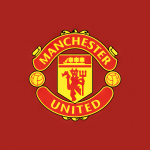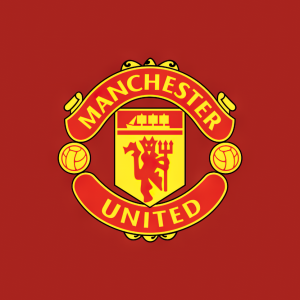Welcome to our dedicated page for Manchester Utd Plc news (Ticker: MANU), a resource for investors and traders seeking the latest updates and insights on Manchester Utd Plc stock.
Manchester United PLC (MANU) operates one of the world's most iconic sports franchises, combining elite football operations with a diversified business model spanning commercial partnerships, media rights, and global fan engagement. This page aggregates official news and analysis related to the club's financial performance, strategic initiatives, and market position.
Investors and stakeholders will find timely updates on earnings reports, sponsorship agreements, stadium operations, and management developments. Our curated feed ensures access to all material announcements while maintaining strict editorial neutrality.
The repository includes press releases covering financial results, brand partnerships, broadcasting contracts, and operational updates. Content is organized to highlight how on-field performance intersects with commercial strategy in the global sports entertainment market.
Bookmark this page for streamlined access to MANU's corporate communications. Check regularly for updates reflecting the club's unique position at the intersection of professional sports and international business operations.
Manchester United (NYSE: MANU) has announced plans to build a new 100,000-seat stadium as part of a major regeneration project in the Old Trafford area. The project, designed by Foster + Partners, is expected to generate £7.3bn per year for the UK economy and create 92,000 new jobs.
The development includes plans for 17,000 new homes and aims to attract an additional 1.8 million visitors annually. The new stadium will be built next to the existing Old Trafford site, preserving its historic essence while creating a state-of-the-art facility. The project features sustainable elements including energy harvesting and rainwater collection, along with a public plaza twice the size of Trafalgar Square.
Co-owner Sir Jim Ratcliffe emphasized that while the current stadium has served for 115 years, it has fallen behind world-class sporting venues. The project is aligned with the Government's infrastructure investment priorities, particularly in northern England.
Manchester United (NYSE: MANU) has announced its participation in the Premier League Summer Series as part of Tour 2025 Presented by Snapdragon, marking their third consecutive year in the US. The team will compete in three fixtures:
- vs West Ham at MetLife Stadium, New Jersey (July 26)
- vs AFC Bournemouth at Soldier Field, Chicago (July 30)
- vs Everton at Mercedes-Benz Stadium, Atlanta (August 3)
This marks United's first participation in the Summer Series and their first-ever game in Georgia. The announcement was made during NBC's broadcast of United's match against Arsenal. Ticket pre-sales begin March 13 at 12PM ET, with general sales starting March 14 at 10AM ET. Manchester United boasts a global community of 1.1 billion fans and followers, having won 69 trophies throughout their 147-year heritage.
Manchester United plc (NYSE: MANU) has announced a comprehensive transformation plan to enhance financial sustainability and modernize its operating structure. The club aims to address five consecutive years of losses since 2019 through significant organizational changes. The plan includes potential redundancies of 150-200 jobs, following the 250 roles already removed last year.
CEO Omar Berrada emphasized the necessity of these measures to strengthen the club's position across men's, women's, and academy teams. The transformation aims to create a more lean and agile organization while maintaining world-class service to commercial partners. The club's dual priorities are achieving on-pitch success and improving facilities, supported by a global community of 1.1 billion fans and followers.
Throughout its 147-year heritage, Manchester United has won 69 trophies and developed into one of the world's leading sports brands. The club generates significant revenue through multiple streams including sponsorship, merchandising, broadcasting, and matchday initiatives, which fund continuous reinvestment in the club while maintaining compliance with UEFA and Premier League regulations.
Manchester United (NYSE: MANU) reported Q2 FY2025 financial results showing a decline in total revenues by 12% to £198.7 million, primarily due to lower Broadcasting revenues which fell 42.1% to £61.6 million following participation in UEFA Europa League instead of Champions League.
Commercial revenue grew 18.5% to £85.1 million, driven by the Snapdragon sponsorship and e-commerce platform conversion. Matchday revenue increased 9.2% to £52.0 million due to strong ticket demand and hospitality.
Operating profit decreased to £3.1 million from £27.5 million in Q2FY24, while adjusted EBITDA fell 22.9% to £70.5 million. The company maintains FY2025 revenue guidance of £650-670 million and expects adjusted EBITDA to be at the high end of £145-160 million range.
Manchester United plc (NYSE: MANU) has announced it will release its second quarter fiscal 2025 financial results on February 19, 2025, at 7:00 AM EST. The report will cover the period ended December 31, 2024.
The company highlights its position as one of the world's most successful sports teams, with a 147-year heritage and 69 trophies. Manchester United boasts a global community of 1.1 billion fans and followers, which enables significant revenue generation from multiple streams including sponsorship, merchandising, product licensing, broadcasting, and matchday initiatives. These revenues support continuous reinvestment in the club.
Manchester United (NYSE: MANU) reported first quarter fiscal 2025 results with total revenue of £143.1 million, down 8.9% year-over-year. Commercial revenue decreased 5.6% to £85.3 million, broadcasting revenue fell 20.4% to £31.3 million, and matchday revenue declined 3.3% to £26.5 million.
The company announced new sponsorship deals with Heineken and renewed partnerships with DHL, Hong Kong Jockey Club and Konami. Management reiterated full-year guidance of £650-670 million in revenue and £145-160 million in adjusted EBITDA. The quarter saw a net profit of £1.4 million compared to a £25.8 million loss in the prior year period.
Manchester United plc (NYSE: MANU) has announced it will release its first quarter fiscal 2025 financial results on November 26, 2024 at 7:00 AM EST. The report will cover the period ended September 30, 2024. The company highlights its position as one of the world's leading sports brands, with a global community of 1.1 billion fans and followers. Throughout its 146-year heritage, Manchester United has secured 69 trophies and generates revenue through multiple streams including sponsorship, merchandising, broadcasting, and matchday initiatives.
Manchester United (NYSE: MANU) has appointed Rúben Amorim as Head Coach of the men's first team until June 2027, with an optional one-year extension. Amorim, recognized as one of Europe's most promising young coaches, will assume his role on November 11, pending work visa requirements. His track record includes winning the Primeira Liga twice with Sporting CP, including the club's first title in 19 years. Ruud van Nistelrooy will serve as interim manager until Amorim's arrival.


